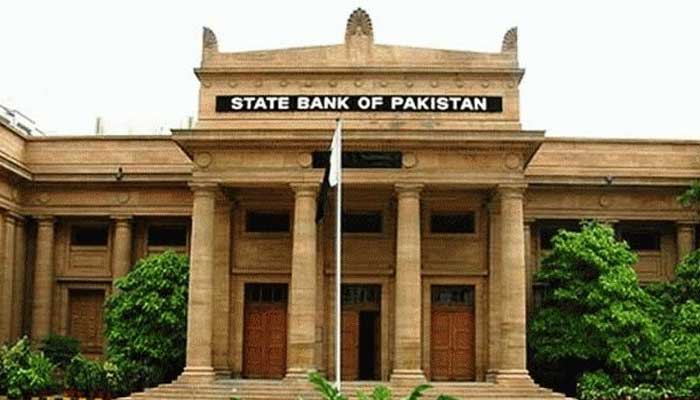Economic steps to wean Pakistan off IMF: SBP
KARACHI: Pakistan may not go for another bailout loan from the International Monetary Fund (IMF) as the recent measures taken to shore up foreign exchange have started bearing fruits, the central bank governor said on Monday.
“The country doesn’t need to go to the IMF for another programme due to addressing recurrent reserves loss,” Dr Reza Baqir said during a lecture on ‘Pakistan Economy: Macroeconomic Challenges and Outlook’ at the Institute of Business Administration.
“Pakistan will not be experiencing a reserves fall as it had faced at the close of every past Fund’s programmes,” Baqir added. The foreign exchange reserves held by the State Bank of Pakistan (SBP) rose to $8.46 billion as of September 20 from $7.28 billion at end-June 2019.
SBP governor said the central bank’s aim is to boost the net international reserves — the reserves which are not built with borrowed money. “These are on the improving path.” Baqir said foreign exchange interventions by the SBP to defend the currency and the fixation of the exchange rate resulted in the decline of the foreign exchange reserves in the past.
“A change in exchange rate system from fixed to market-based, which was done in May, has [however] resulted in the improvement in the current account balance. From August, the current account deficit has started falling sharply,” he added. “After a lag, the current account deficit started to fall from $2 billion to half a billion dollars in August. Today forex market is much better and this is financially doing well.”
SBP governor said the country had secured various funding facilities from the IMF between September 1993 and December 2004. The IMF approved another $6 billion extended fund facility arrangement in July this year to support the country’s economic reform programme. The country received the first installment of $991.4 million under the three-year loan package during the same month from the IMF.
Baqir said the government is trying to maintain a fiscal discipline. “To attain this goal, the government has stopped borrowing from the SBP to finance its budget deficit.” The central bank governor said the country needs to raise domestic savings and investment to address fundamental fiscal challenges. “Saving-to-GDP ratio remains low and in investment, Pakistan has lagged behind the peers,” he added. “Unless we address low investments and savings, we will not be able to achieve sustainable growth.”
Baqir said the IMF programme has brought stability, which is a necessary condition for growth. SBP governor further said the best available tool for the central bank to fight inflation is to raise interest rates.
“Any future monetary policy decision will be based on inflation projections,” he said, citing the SBP’s monetary policy committee as stating in the last statement. “The stable exchange rate helps bring down inflation,” he added. “This has lead to slowdown in the dollarisation of the economy as people will prefer to keep savings in the rupee rather than in dollars.”
-
 'Too Hard To Be Without’: Woman Testifies Against Instagram And YouTube
'Too Hard To Be Without’: Woman Testifies Against Instagram And YouTube -
 Kendall Jenner Recalls Being ‘too Stressed’: 'I Want To Focus On Myself'
Kendall Jenner Recalls Being ‘too Stressed’: 'I Want To Focus On Myself' -
 Dolly Parton Achieves Major Milestone For Children's Health Advocacy
Dolly Parton Achieves Major Milestone For Children's Health Advocacy -
 Oilers Vs Kings: Darcy Kuemper Pulled After Allowing Four Goals In Second Period
Oilers Vs Kings: Darcy Kuemper Pulled After Allowing Four Goals In Second Period -
 Calgary Weather Warning As 30cm Snow And 130 Km/h Winds Expected
Calgary Weather Warning As 30cm Snow And 130 Km/h Winds Expected -
 Maura Higgins Reveals Why She Wears Wigs On 'The Traitors' And What Her Real Hair Is Like
Maura Higgins Reveals Why She Wears Wigs On 'The Traitors' And What Her Real Hair Is Like -
 Brandi Glanville Reveals Shocking Link Of Facial Issues To Leaking Implants, Claims 'no' Support From Ex Eddie Cibrian
Brandi Glanville Reveals Shocking Link Of Facial Issues To Leaking Implants, Claims 'no' Support From Ex Eddie Cibrian -
 Who Is Rob Rausch’s Girlfriend? 'The Traitors' Winner Linked To Kansas City Woman
Who Is Rob Rausch’s Girlfriend? 'The Traitors' Winner Linked To Kansas City Woman -
 Bobby J. Brown, 'Law & Order' And 'The Wire' Actor, Dies At 62
Bobby J. Brown, 'Law & Order' And 'The Wire' Actor, Dies At 62 -
 Netflix Gives In As Paramount Offers Massive Breakup Fee To Step Away From Warner Bros. Discovery Bid
Netflix Gives In As Paramount Offers Massive Breakup Fee To Step Away From Warner Bros. Discovery Bid -
 Who Won 'Traitors' Season 4? Rob Rausch Claims $220,800 Grand Prize
Who Won 'Traitors' Season 4? Rob Rausch Claims $220,800 Grand Prize -
 Niall Horan Shares Update On New Music On The Way
Niall Horan Shares Update On New Music On The Way -
 Backstreet Boys Member Brian Littrell Refiles Trespassing Lawsuit Against Florida Retiree
Backstreet Boys Member Brian Littrell Refiles Trespassing Lawsuit Against Florida Retiree -
 Kate Middleton Dubbed ‘conscious Shopper’ By Famous Fashion Expert
Kate Middleton Dubbed ‘conscious Shopper’ By Famous Fashion Expert -
 Princess Catherine Joins Volunteers In Newtown During Powys Visit
Princess Catherine Joins Volunteers In Newtown During Powys Visit -
 Shamed Andrew Thought BBC Interview Was ‘time To Shine,’ Says Staff
Shamed Andrew Thought BBC Interview Was ‘time To Shine,’ Says Staff




